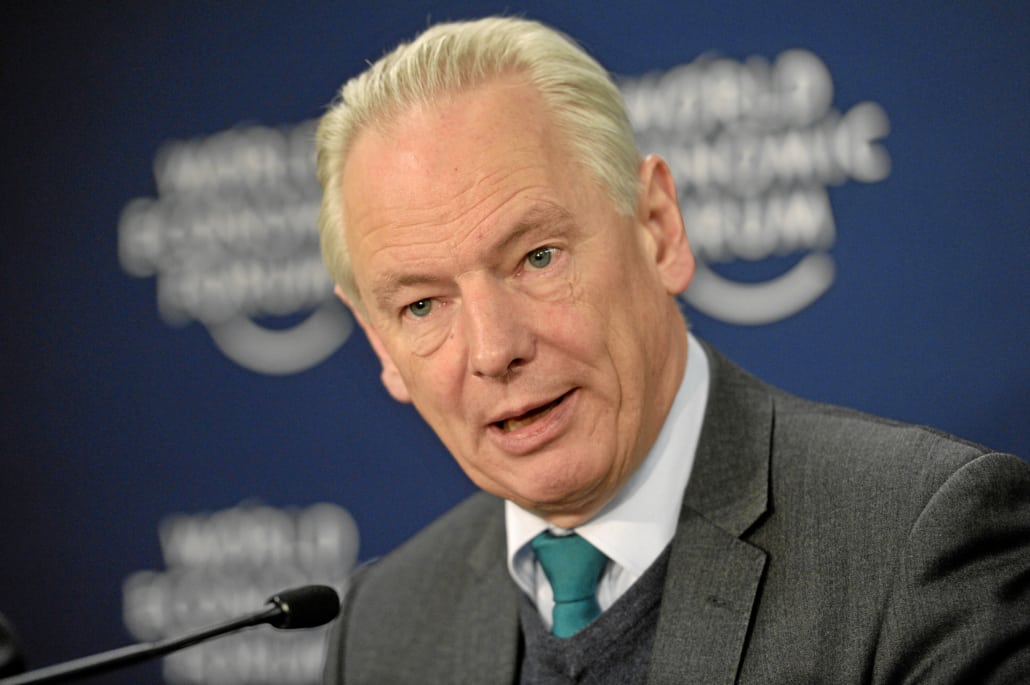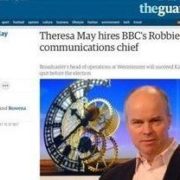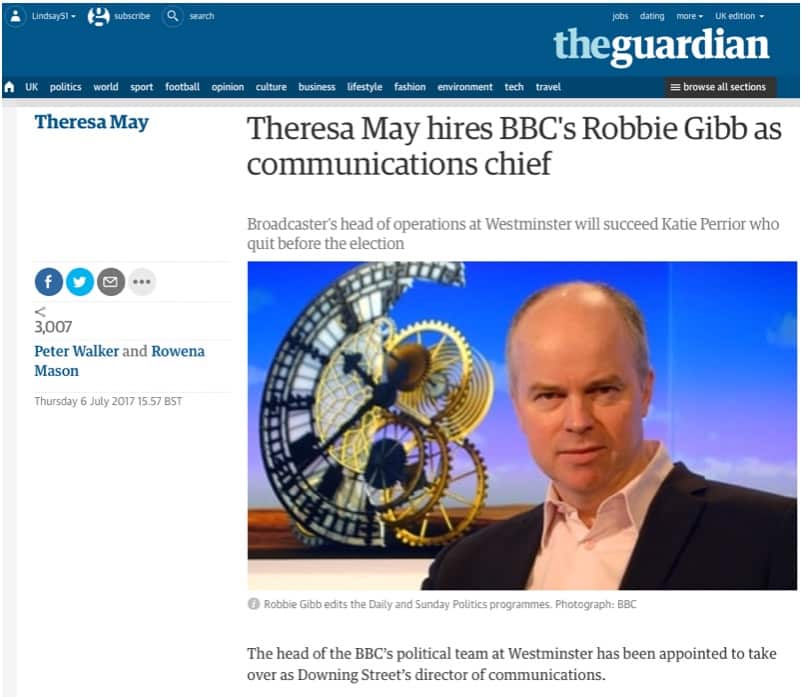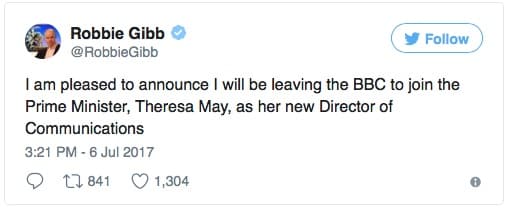Messaging explained: Robbie Gibb steps up to save PM
The big news last week in the world of political PR was that the BBC’s head of operations at Westminster, Robbie Gibb, was named as Theresa May’s new director of communications. Here is how The Guardian reported it:
BBC’s Robbie Gibb gets top job
While I am constantly irritated by large organisations and the government appointing senior journalists instead of professional PRs to do high-powered well-paid comms jobs, this seems to have been a rather more sensible choice than some. Gibb has worked for the Tories previously and as a BBC manager is in any case rather more than a hack.
[If you haven’t heard or read me grump about this before, one of my beefs is that PR is a profession and should be more respected. Whilst it overlaps with journalism it is a very different job. Some brilliant journalists make excellent PRs but most don’t. And in the meantime, it stops excellent PRs being promoted and actually skews the profession by creaming off the top jobs and giving them to ill-qualified media names.]
Anyway, that aside – the appointment of Gibb made a whole feature on Radio 4s Sunday lunchtime programme The World This Weekend – which by the way my Dad occasionally presented more than 20 years ago so I have an affection for it.
Francis Maude tribute to Gibb
The team did what we call in the trade a ‘package’ or a report on Robbie Gibb and interviewed his former boss in the Tory Party, Francis Maude. As a tribute to Gibb, Maude or Baron Maude of Horsham to give him his full title these days gave this soundbite.

Former Conservative frontbencher Francis Maude explains why Robbie Gibb was so useful
We were looking for a serious figure to be my Chief of Staff and effectively to be Press Secretary as well, and Robbie was brilliant and was willing to leave his job in the BBC to do that. What he was very good at was working with us to craft the messages.
I mean, what we did at that time was we took the concept of stealth taxes, and one of my team coined the phrase stealth taxes, which passed into the language.
My classic rule of political communication is you need to spend quality time working out what are the few things you want to say, and then say them all the time and just at the moment when you feel physically sick hearing yourself say the words is the moment at which someone will say why haven’t you been saying this before…
…and I remember the moment a few months after Robbie had started working for me when a taxi driver said to one of our team – with all of these stealth taxes Labour are introducing I wonder the Tories aren’t making more of it – which illustrated the rule perfectly.
Messaging explained
Whilst, the link is available for a couple of weeks on BBC iPlayer (starting at 9.29) we have transcribed this one minute of radio because it brilliantly explains messaging. Messaging is one of those words that people have a rather woolly understanding of but for us, it has a very precise meaning. Our meaning is the same as Maude’s ‘classic rule of political communication’.
I particularly love that Maude identifies you need to spend ‘quality time’ working out the few things you want to say.
You can overdo repetition
On the point of repetition, we might differ slightly. We don’t think it is a good idea to annoy everyone with key phrases as Theresa May did in the election with ‘strong and stable’. If you need reminding here is a write up of one particularly underwhelming Maybot speech.
One does have to apply intelligence and judgement when using messages but the Maude principle is right. You need a few key phrases, with a solid argument behind them and then repeat them in different forums (rather than the same interview or speech) as often as possible.
And of course, if you need help identifying and crafting your messages you really might benefit from the support of an experienced ex-journalist. They are usually good at messaging but often not so good at many other parts of the PR job like strategy or dealing with internal sensitivities. Should you feel such a need you have the option of poaching someone from the BBC on an inflated salary, understanding they might be ill-equipped to do the rest of the job – or you could employ one of the Media Coach team for just a few hours to facilitate a message building session.
Meanwhile, it will be very interesting to see how much difference Robbie Gibb makes to Mrs May. I suspect we will see the effect very quickly.
- Why Mick Lynch is Right to be Wary of Pre-recorded Interviews - April 16, 2024
- Takeaways from Netflix Scoop: The Prince Andrew Interview - April 10, 2024
- Kate Shows How to Read Autocue - March 26, 2024







Leave a Reply
Want to join the discussion?Feel free to contribute!